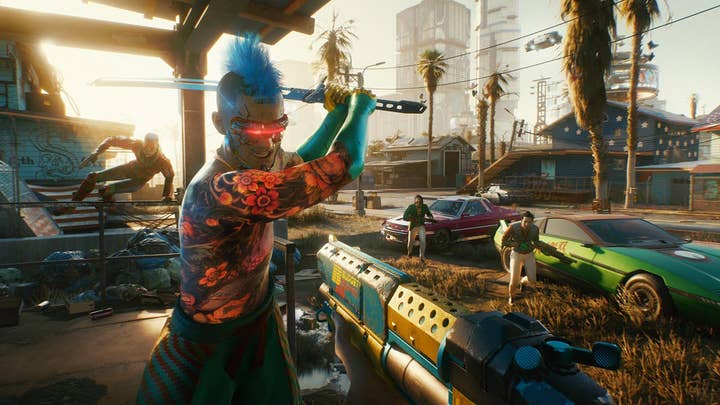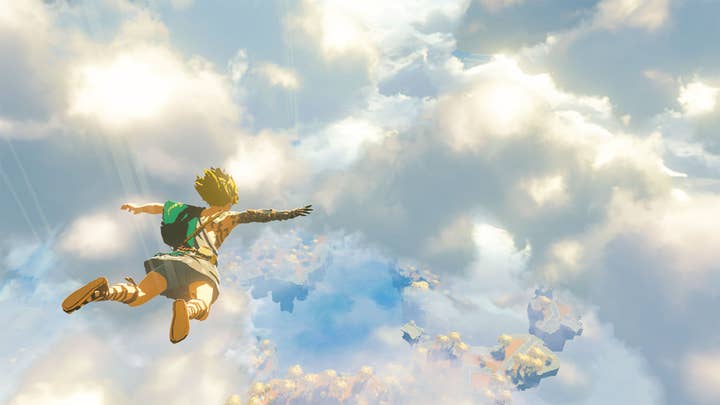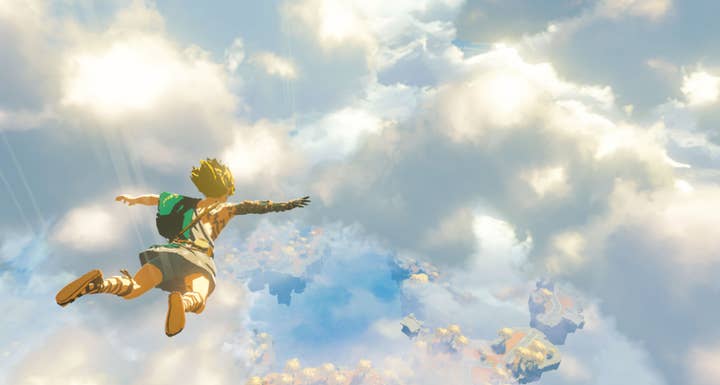What has happened to all the video games?
As the industry braces itself for a quiet remainder of the year, and with more major games getting delayed, we ask developers about the challenges they are facing
There was a sense of optimism at the start of 2022 that this was going to be a banner year for video games.
The first few months were full of major releases: Pokémon, Elden Ring, Horizon, Gran Turismo, Dying Light, to name just a handful. And although the slate beyond that was uncertain, there were some big titles due over the year. The two biggest (outside of annual titles like Call of Duty) were Starfield and The Legend of Zelda.
But both games have been delayed, the release schedule has dried up, and the majority of game reveals over the last month have been for titles due in 2023. It's not true to say there is nothing coming out this year, there are still strong titles due this Christmas, but not many on a scale that media owners and retailers were hoping for.
So what's going on? Ask any developer and they'll tell you that we're witnessing the repercussions of COVID-19. Yet with the movie and TV industry continuing to deliver major releases on a consistent basis, what is it about games that means we're still struggling some two years since the pandemic started?

The hidden impact of remote working
Earlier this month we interviewed Sega's Two Point Studios, a 40-person developer that had delayed (from May to August) its upcoming simulation game: Two Point Campus. In the interview the studio revealed that once they got to the business end of releasing the game, they realised things weren't quite as they had expected. And that some of the issues that would usually have been fixed during development hadn't been.
"We lost the meerkat thing [with remote working]," says studio director Gary Carr. "Because if someone's swearing at your level over there, or someone's moaning about a bug... you just hear it and fix it on the fly."
The situation that Carr is describing is unique to smaller teams who might work in one space. Yet remote working has slowed things down for larger studios, too. The lack of face-to-face contact due to stay-at-home orders has made things particularly tricky for games earlier in development. This is the reason why we're only starting to see the consequences of that now.

"When you're late stage in production and you know exactly what you're making and people are well tasked, it's all about saying: let's stick to our lanes and be productive," explains Guha Bala, president of Velan Studios that shipped two games during the lockdowns. "If you have a productive workspace in your home, if you know exactly what you need to do in that day and week, you can get to it.
"We saw a lot of games get completed right after the pandemic started. We released Mario Kart Live in 2020 over the summer. We completed Knockout City the following year, and we thought 'hey, this is working out, it's not disastrous'. And everyone was feeling that. It was a new way to work... who needs an office anyway?
"But when it comes to doing new cycles of R&D, where it really requires serendipity, much more informal communication, and the goals are more amorphous... you know you want to create something cool and you've got a general direction, but you don't know exactly what it is. Productivity is defined by creative insights and what your R&D goals are, it's not defined by things you check off a list in a single day. So that has been far more difficult for us to do."
Bala explains that this is particularly difficult if you're trying to make something different.
"Often you're rewriting technology, and if you're doing it all by yourself, and it's self-contained... that's one thing. But if you're part of an inter-dependent team, and everything is at different stages of brokeness... it's like a surgery. If you open something up and want to reinvent these things... it's super complex and you can't walk away in the middle of surgery when you've got an entire team on it. It's hard to do hand overs and things like that without being present. And presence is being in the same space, with the same experience, and it's about more informal communication where body language comes into play.
"Working remotely, there is a lag to almost everything because you tend to lose that informal talk"
"It's really slowed us down. We have a product that's coming out next year, which was in R&D during the fall of 2020, and we found that between October 2020 and September 2021, progress was incredibly slow. But when we came back on site, things sped up dramatically, by up to five times. And that's just because people were able to communicate, see the same things and iterate."
This absence of informal conversation and serendipity is something every developer we spoke to brought up. Not every developer was able to go on-the-record, mainly due to concerns from their parent company around discussing game delays, but most studios were eager to explain the challenges they face.
"Challenges with planning and deadlines are pretty much the same regardless if it's in-office or remote work," says Martin Hultberg, co-founder of Swedish studio Sharkmob. "Properly predicting the time it takes to do certain complex tasks can be hard enough, even in the best of circumstances. The bigger problem probably comes down to precision; the minute details and finer elements of implementation. Working remotely, there is a lag to almost everything because you tend to lose that informal talk you often share in the same physical workspace. Since you don't socialize in the same way; talking work by the water cooler or over a cup of coffee... you can easily lose some of those creative sparks.

"Now, for some teams this is not an issue and depending on where you are in the project it ranges in severity. I do think it is fair to say that highly collaborative and creative work is often easier, and more free flowing, the fewer barriers you have."
Bala also points to the sheer level of growth of some games studios, with a lot of unfamiliar faces and people working on different things that they weren't doing before. This, coupled with remote working, can make it harder to build trust between people and manage team happiness. So much of it, he observes, is down to informal conversations in the lunch room, and detecting things through body language.
Staff churn is something that was mentioned a few times, too. One creative director at a major Canadian studio described it as "their biggest challenge right now," while Bala admits it is harder to retain new employees when they don't feel connected to the company and its people.
"There are a lot of reasons why teams stick together, and one of the biggest indicators of performance is around team veterancy," Bala begins. "It's not just individual excellence, but the teams who have been on a journey together. They operate the best. That's true if you're a team of firefighters, health workers or a development team. But in this environment, that team experience is pretty impersonal. Maybe when we're talking 50% of the cameras are turned off, so you don't even see the people you're talking to. You don't have rich peer-to-peer relationships because you're only talking about the work, and you're not mentioning about your lives.
We're all on a journey to find a more sustainable model, because the idea that everything exists in a virtual space, without human contact, it's not really how we are"
"So much of it is: how do you feel?' What chemistry do you have with your peers? You're less likely to have close friends if you're going into a new company, and less likely to form these friendships, and less likely to have a great relationship with your manager. So you're more likely [to leave] if you see another cool opportunity elsewhere... you don't have to do anything, they'll ship you a new computer, log-in to a new Perforce server, and you're away.
"We are seeing this heightened turnover in the industry, and that really drops the veterancy of teams. So again, a lot of unpredictability comes from that in terms of trying to complete anything. And when you do complete things, it results in a serious drop in quality."
The Cyberpunk warning
The quality drop is the biggest concern. Our Canadian developer observes: "Look at the games that didn't get delayed or when the teams weren't given more time. The best two examples I can think of is Battlefield 2042 and Call of Duty: Vanguard. They came out on time, right? Same time they always do. But they disappointed. And that's not my opinion, that's the Metacritic score speaking. That's not right. These are some of the best game studios in the world."
Indeed, it is possible -- as the likes of Battlefield and Call of Duty have proved -- to still hit your schedules and get your game out. But publishers and developers are, broadly speaking, less willing to release a title that isn't ready.
"We took one look at what happened to Cyberpunk 2077 and thought 'yep, we're delaying this'," says a US game director from one of the world's biggest game franchises. "CD Projekt is one of the most respected games studios in the world. And they released a game so broken that Sony pulled it from their own digital store. That's unprecedented. That's humiliating. We knew our game wasn't in the best shape, maybe we could patch it up with a Day One update... but we saw Cyberpunk and decided it wasn't worth the risk. I suspect that was a wake-up call across the industry."

And it's a little easier to delay a game these days.
One senior executive at a big Japanese publisher explains: "There was a time when delaying a game could be a disaster, particularly if you're shifting it out of a financial year. Today, it's not ideal, it still hurts, but we'll live. We've got this digital business ticking things over on Steam. We've got recurrent revenue coming in through live service games. And during the pandemic, that stuff has been doing better than ever."
It may have been due to the pandemic that these games need delaying, but not necessarily. Our US game director explains that the industry is going through a momentous technological shift.
"In my 20 years, I've never known anything like it," he tells us. "Cloud technologies, new engines, new consoles, cross-platform play... you've got games with hundreds of players, playing across devices with different internet speeds in different countries. Planning and predicting that, no matter how good you are, is hard. Throw in a pandemic... is it any surprise games are coming out in fits and starts?"
Indeed, remote working may be a major contributor to the state of things, but there are other factors at play.
"I suspect that Cyberpunk 2077 was a wake-up call across the industry"
"Delays are always tightly connected to the details of the project and team," says Hultberg. "So it is hard to say there is something that applies across the board. The pandemic did, and still does, have an impact of course -- that was pretty much the same for everyone. It wasn't just how it impacted the dev teams though, but also the market in general, hardware suppliers, release windows, competitor titles and so on. Once the dominoes start falling it tends to have far and wide-reaching effects. As we all know it can still be hard to get ahold of something as basic as a gaming console. Certain PC hardware is backlogged.
"On top of that you have all the classic things that can cause delays: new engine upgrades or releases, technological breakthroughs you want to include in your game, trending topics, real world events. An example close to heart is the war in Ukraine. We work closely with an outsourcing partner in Kyiv and when war broke out they had to flee their offices. Some could leave the country, most had to stay. Clearly that impacted their work. We offered what assistance we could and even took several of them in at our office in Malmö. The entire situation is a tragedy and it has far reaching effects, even to something as basic as video game development."

Finding a way forward
Is there an end to this in sight? 96% of participants in the US Best Places To Work Awards last month told us that they had no intention of making their staff return to the office full time. The developers in this article admit "the genie is out of the bottle" and the idea of going back to the commute every day, and only hiring people who are willing to move to the area, is a no-starter.
"It is better for individual's lifestyles, and it also allows for collaboration on a much broader geographical basis than previously," Bala says. "I [said all the things I said above] because we need to get to the other side of it. We need to know how to master these things. It's not like the problem is going to go away."
Hultberg adds: "We need to embrace what came out of this and see how we can best create working environments that fit the devs and the projects. That is bound to be different, both between workplaces but maybe even within the timeframe of a certain project.
"We are currently trying out different solutions at the studio, for example a setup where you work three days at the office and two days from home. One good and interesting thing that did come out of the pandemic is how we have to evolved our view on remote work and the culture around it. I suspect there will be a lot of tinkering with these things for quite some time to come. Not many big game projects have gone through a full remote cycle yet and iterations are bound to take place as we figure out the best way ahead."
Bala concludes: "There are a variety of solutions that people are offering now, and we're trying some of them. There is a mix of on-site events, opportunities to meet up in person. Face-to-face interactions to complement remote. We're all on a journey here to find a more sustainable model, because the idea that everything exists in a virtual space, without human contact, it's not really how we are as humans. I don't think we want that."

